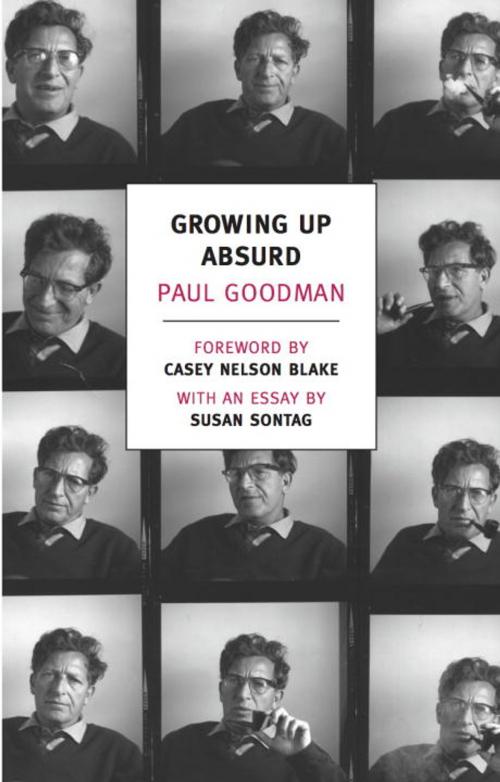Growing Up Absurd
Problems of Youth in the Organized Society
Nonfiction, Social & Cultural Studies, Political Science, Government, Social Policy, Reference & Language, Education & Teaching, Educational Theory, Philosophy & Social Aspects, Social Science, Sociology| Author: | Susan Sontag, Paul Goodman | ISBN: | 9781590175965 |
| Publisher: | New York Review Books | Publication: | December 13, 2011 |
| Imprint: | NYRB Classics | Language: | English |
| Author: | Susan Sontag, Paul Goodman |
| ISBN: | 9781590175965 |
| Publisher: | New York Review Books |
| Publication: | December 13, 2011 |
| Imprint: | NYRB Classics |
| Language: | English |
Paul Goodman’s Growing Up Absurd was a runaway best seller when it was first published in 1960, and it became one of the defining texts of the New Left. Goodman was a writer and thinker who broke every mold and did it brilliantly—he was a novelist, poet, and a social theorist, among a host of other things—and the book’s surprise success established him as one of America’s most unusual and trenchant critics, combining vast learning, an astute mind, utopian sympathies, and a wonderfully hands-on way with words.
For Goodman, the unhappiness of young people was a concentrated form of the unhappiness of American society as a whole, run by corporations that provide employment (if and when they do) but not the kind of meaningful work that engages body and soul. Goodman saw the young as the first casualties of a humanly repressive social and economic system and, as such, the front line of potential resistance.
Noam Chomsky has said, “Paul Goodman’s impact is all about us,” and certainly it can be felt in the powerful localism of today’s renascent left. A classic of anarchist thought, Growing Up Absurd not only offers a penetrating indictment of the human costs of corporate capitalism but points the way forward. It is a tale of yesterday’s youth that speaks directly to our common future.
Paul Goodman’s Growing Up Absurd was a runaway best seller when it was first published in 1960, and it became one of the defining texts of the New Left. Goodman was a writer and thinker who broke every mold and did it brilliantly—he was a novelist, poet, and a social theorist, among a host of other things—and the book’s surprise success established him as one of America’s most unusual and trenchant critics, combining vast learning, an astute mind, utopian sympathies, and a wonderfully hands-on way with words.
For Goodman, the unhappiness of young people was a concentrated form of the unhappiness of American society as a whole, run by corporations that provide employment (if and when they do) but not the kind of meaningful work that engages body and soul. Goodman saw the young as the first casualties of a humanly repressive social and economic system and, as such, the front line of potential resistance.
Noam Chomsky has said, “Paul Goodman’s impact is all about us,” and certainly it can be felt in the powerful localism of today’s renascent left. A classic of anarchist thought, Growing Up Absurd not only offers a penetrating indictment of the human costs of corporate capitalism but points the way forward. It is a tale of yesterday’s youth that speaks directly to our common future.















